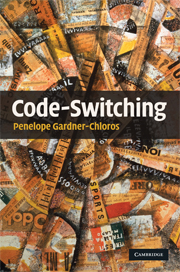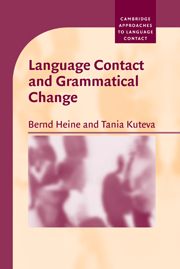Code-switching
It is quite commonplace for bilingual speakers to use two or more languages, dialects or varieties in the same conversation, without any apparent effort. The phenomenon, known as code-switching, has become a major focus of attention in linguistics. This concise and original study explores how, when and where code-switching occurs. Drawing on a diverse range of examples from medieval manuscripts to rap music, novels to advertisements, emails to political speeches, and above all everyday conversation, it argues that code-switching can only be properly understood if we study it from a variety of perspectives. It shows how sociolinguistic, psycholinguistic, grammatical and developmental aspects of code-switching are all interdependent, and findings in each area are crucial to others. Breaking down barriers across the discipline of linguistics, this pioneering book confronts fundamental questions about what a 'native language' is, and whether languages can be meaningfully studied outside of the individuals who use them.
- Provides a summary of the main work on code-switching in all the relevant fields
- Establishes for the first time an integrated, multidisciplinary perspective on the subject, encouraging a comparative approach
- Contains examples from numerous language combinations and bilingual communities
Reviews & endorsements
'The volume does remind us that sociolinguistics has long been convinced that language can tell us something not only about specific social phenomena, but also about the big questions of how cognition, interaction and social structuration are linked.' Journal of Sociolinguistics
'This excellent and engaging book is prefaced by a version of the Indian (or perhaps ultimately Chinese) story in which a number of blind men grasp different parts of an elephant (the trunk, the tail, the tusk), thus reaching divergent conclusions about the beast's salient characteristics. Penelope Gardner-Chloros uses this history to illustrate her sense that the concept of code-switching (CS) is understood and operationalised rather differently by scholars and researchers approaching it from various angles (formal linguistics, psycholinguistics, sociolinguistics).' Brian Poole, sciencedirect.com
Product details
July 2009Hardback
9780521862646
254 pages
235 × 155 × 15 mm
0.54kg
Available
Table of Contents
- 1. Introduction
- 2. Code-switching and language contact
- 3. Social factors in code-switching
- 4. Code-switching in conversations
- 5. Grammatical aspects of code-switching
- 6. Psycholinguistic approaches
- 7. Acquiring code-switching: language mixing in children and L2 learners
- 8. Conclusions.






